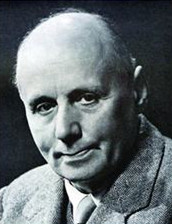Chinese Guqin Masters Campus Tour 2017
Issue date:2017-09-27On September 27th, UWC Changshu China had the great honor to host the Chinese Guqin Masters Campus Tour 2017. It was one of the programmes during the Southern China Cultural Festival with the support of the local government’s cultural bureau.
On September 27th, UWC Changshu China had the great honor to host the Chinese Guqin Masters Campus Tour 2017. It was one of the programmes during the Southern China Cultural Festival with the support of the local government’s cultural bureau.
Changshu is the birth place of Guqin, one of the oldest Chinese plucked seven-string Chinese musical instrument with a history of more than 3,000 years. Over the long historical period of ancient China, “Qin, Chess, Calligraphy and Painting” have always been regarded as the best method of self-cultivation for men of letters. Of these, Guqin is regarded as the most refined due to its light, cool and elegant quality of music, which reflects the character of inspirational Chinese scholars. Quqin is also in UNESCO’s second list of “Intangible Cultural Heritage”. Many of the ancient Chinese poems which described the elegance of Guqin have passed down from generations to generations.
However, nowadays, not many young people are interested in Guqin. Guqin masters who came to perform include some of the most famous and prestigious Guqin players. These masters hope that through their performances, they can help enhance the influence of Guqin and introduce Guqin to more people.
In order to help the audience to understand the music better, the ceremony of master explained in English what every piece of music tries to convey.
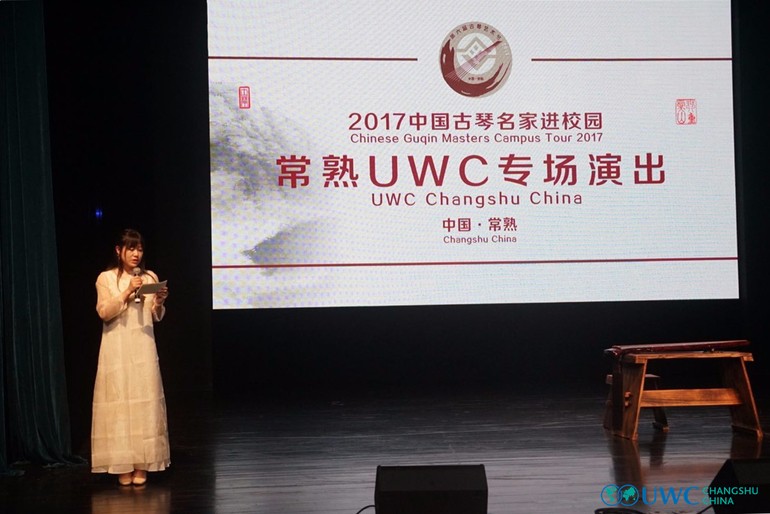
Song of Autumn Sky expresses the elegance and generosity of a man of great virtue, living an ordinary life but with vision and ambition.
Song of the Autumn Frontier is a piece of lyre music with elegant and delicate tone. Its melody depicts the feeling of an imperial concubine married to a chieftain of a minority ethnic group in the northern frontier of China.
Flowing Water depicts the trickling streams and roaring rivers. With harmonious melodies, it expresses the love for nature’s beauty and vitality.
“Dialogue between the fisherman and woodcutter” shows the composer’s aversion towards those who chase after fame and wealth and admiration for the happiness of the fisherman and woodcutter working in the beautiful nature.
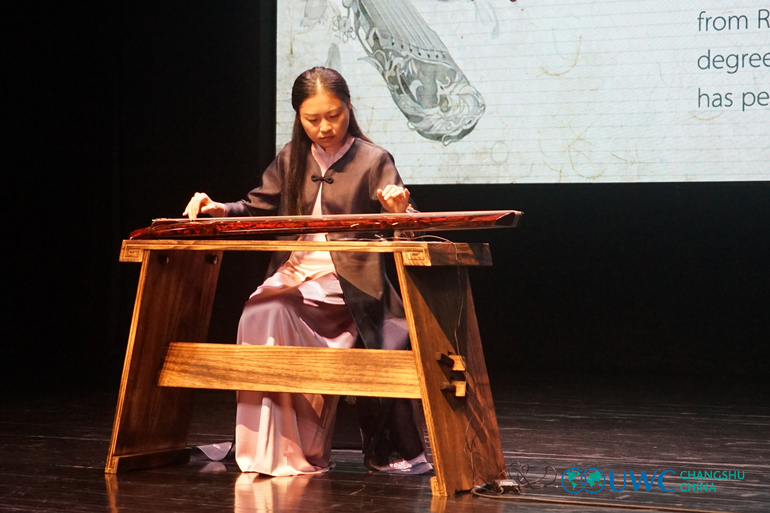
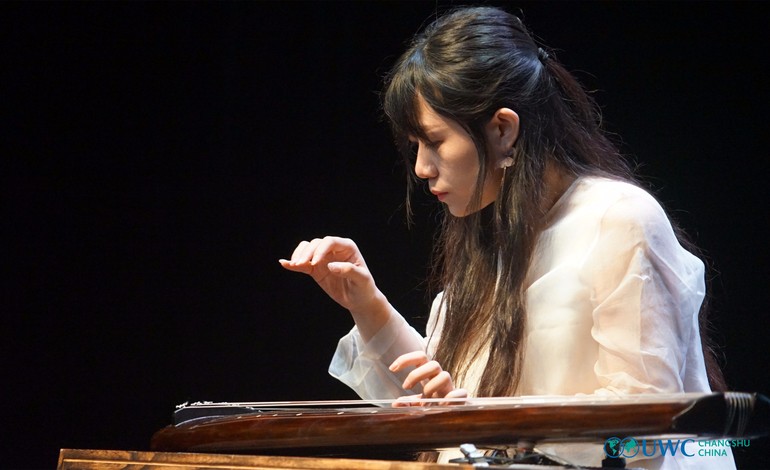

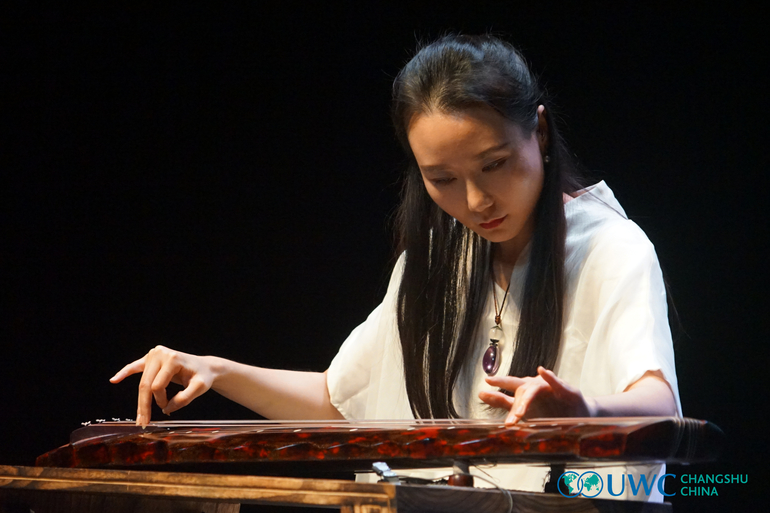
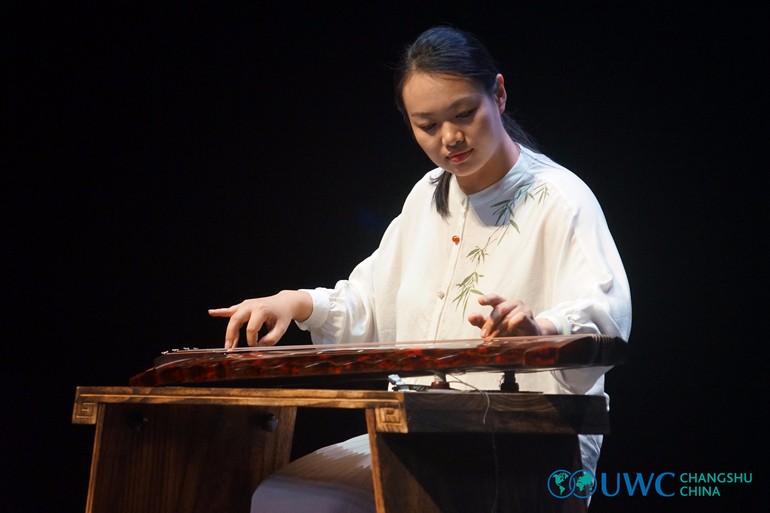
The last piece is called “Loulansan”. The composition of the piece drew inspiration from the beautiful natural landscape of the ancient silk road of China.
One of the masters, Dr. Zeng told us that Playing Guqin is to pursue inner peace in ancient times and can be a good way for meditation. So it is very different from Western music.
Music teacher Cristopher Genz said he was very impressed by how often the players used harmonics. The pieces seemed to follow similar patterns, starting slow, getting more agitated and ending slower again. The very last piece was very different, which was a nice change. It almost sounded as if written in more recent times (we discovered later that it was written quite recently, the composer was born in 1935). It was interesting that rhythm is not notated in Guqin notation – up to the individual player. “I really like what the player said that a Guqin player is a composer, performer and audience in one person. Importance of this instrument is not ‘showing off’ skills (like many Western instruments and performers), it is much more a reflective instrument, played for one’s own pleasure.”
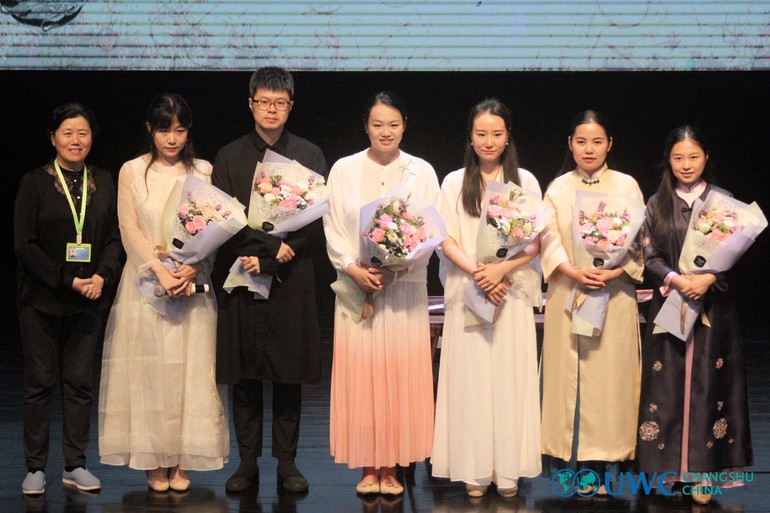
Vice Principal and Director of Chinese Cultural Programme, Ms. Li Ping thought highly of the show and said students of UWC were so lucky to have the chance to enjoy a first class Guqin performance.”
Written by:Richard Hu,Pre-DP
Translated and summarized by Media group member: Weiyuan Shen, Pre-DP
Photo by Media group member:Zackery Yao,Pre-DP







